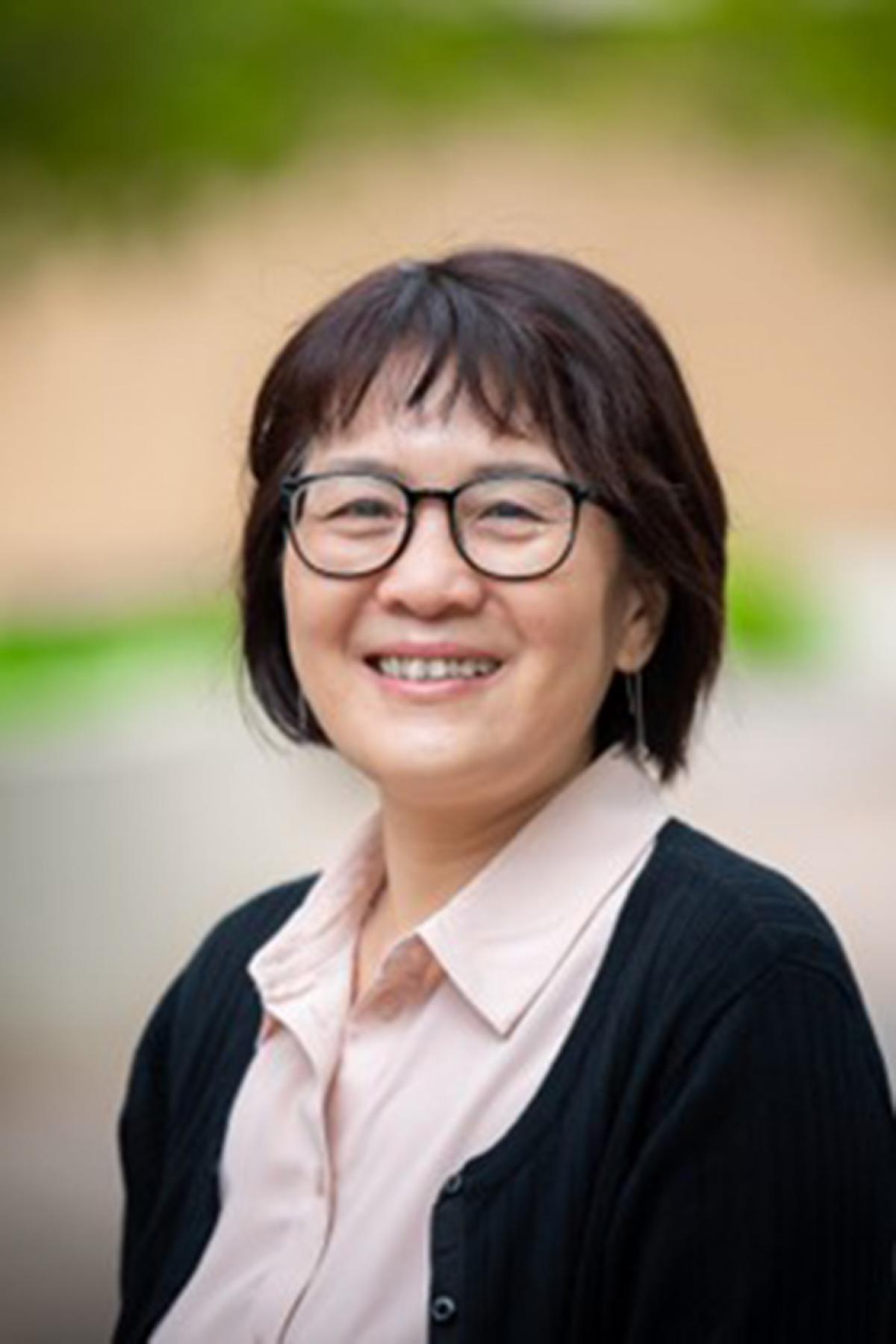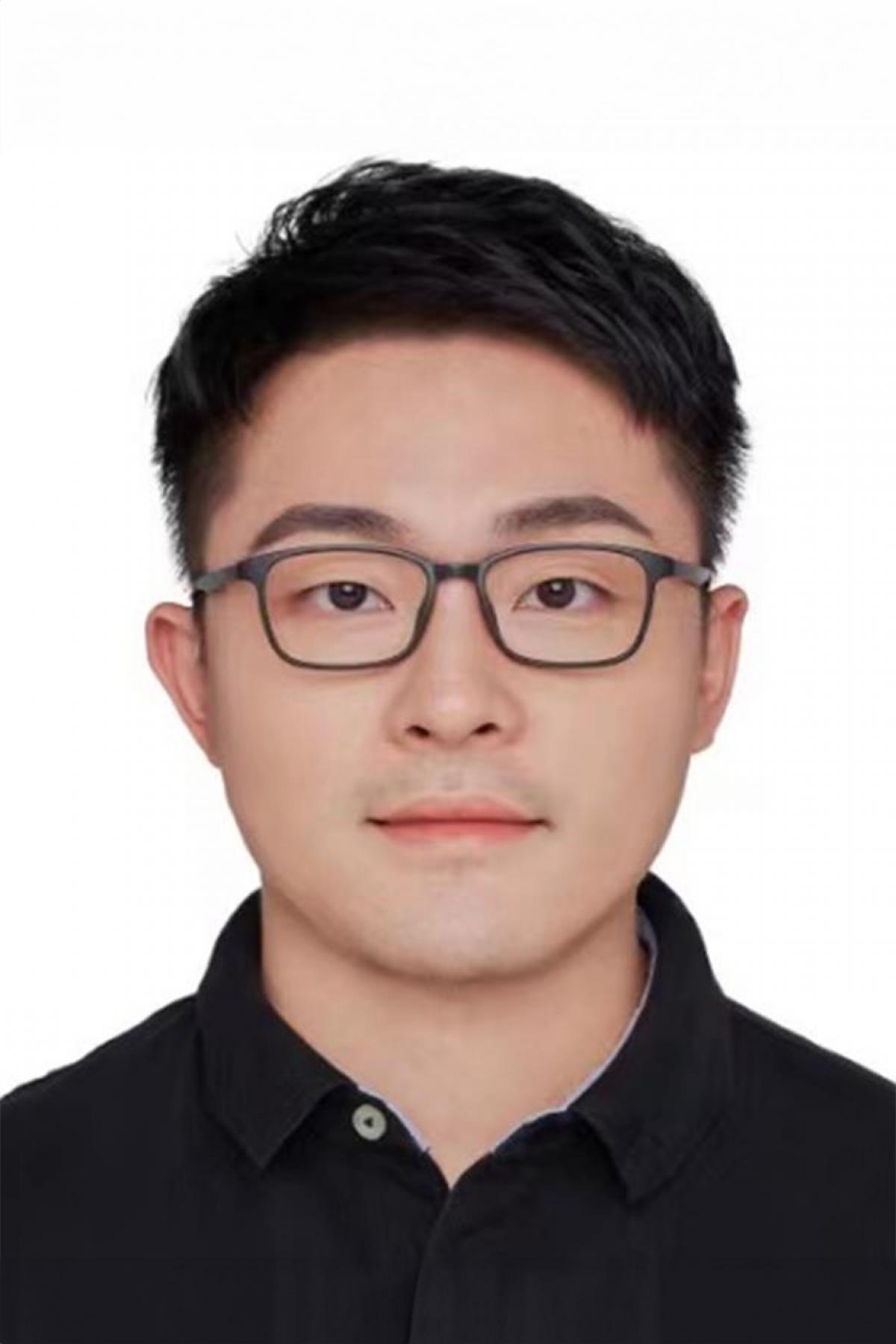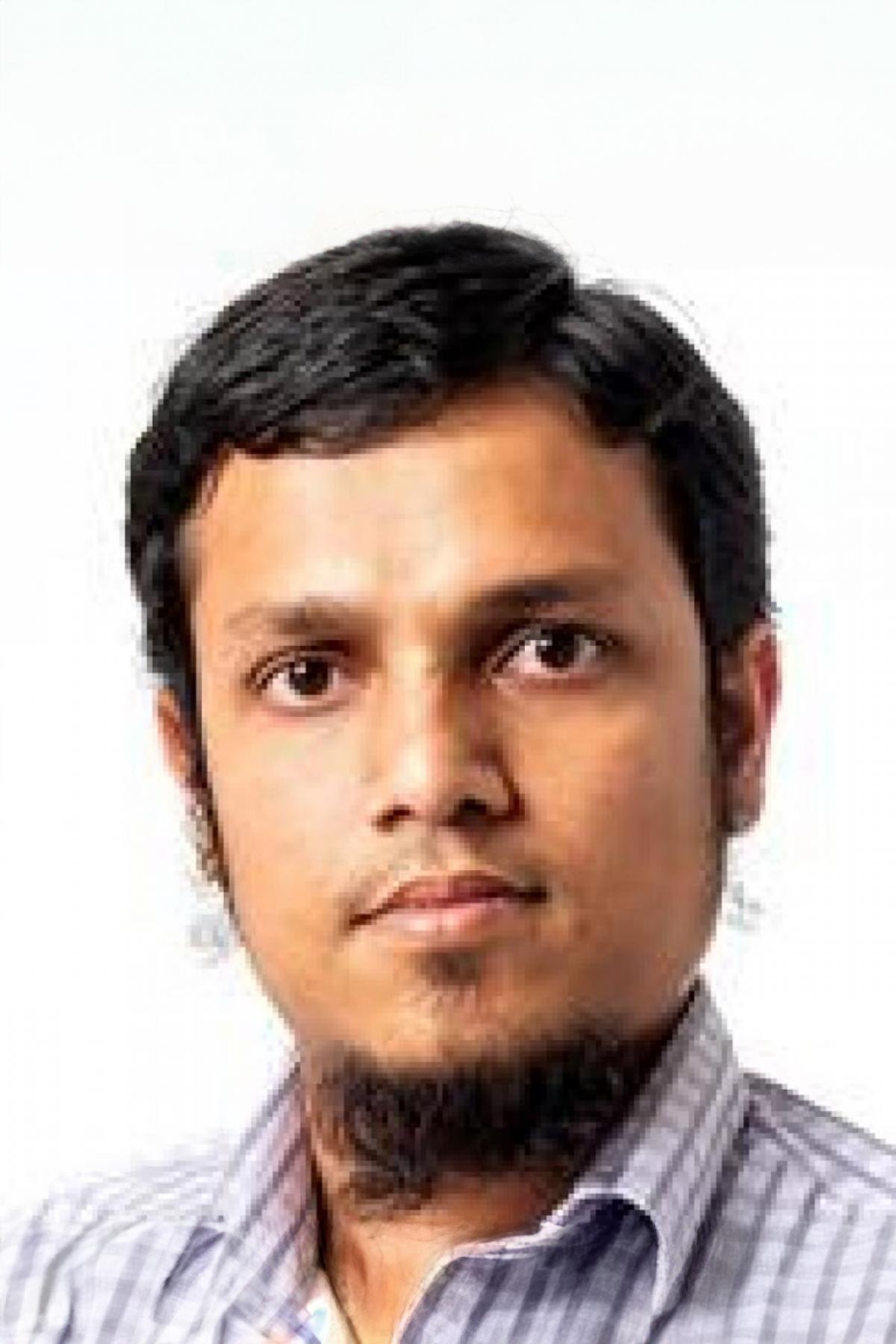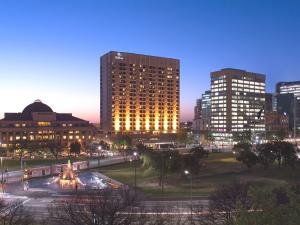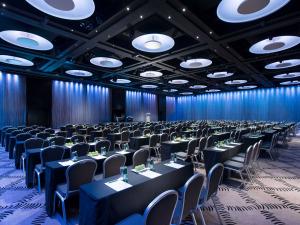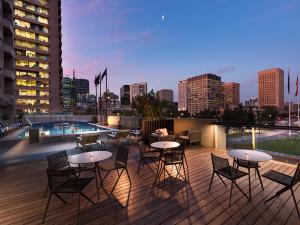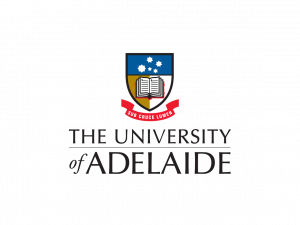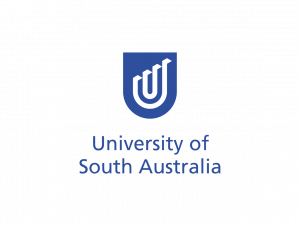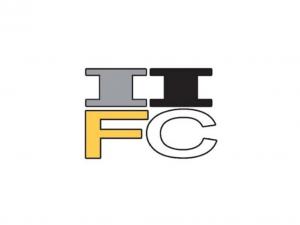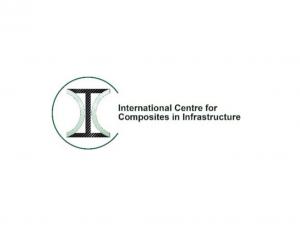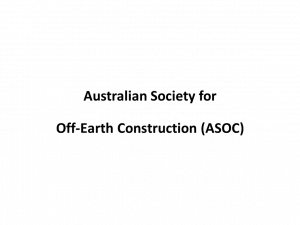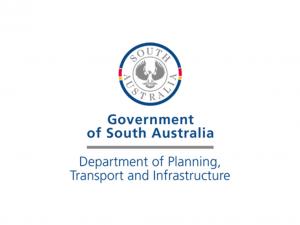APFIS2024
APFIS2024
Ninth Asia-Pacific Conference on FRP in Structures Adelaide, Australia
8 - 11 December 2024
Welcome message Latest news About Keynote presenters Key dates Committees Awards Submissions Program Registration Venue & accommodation Sponsors & Exhibitors Enquiries
Conference details
-
Latest news
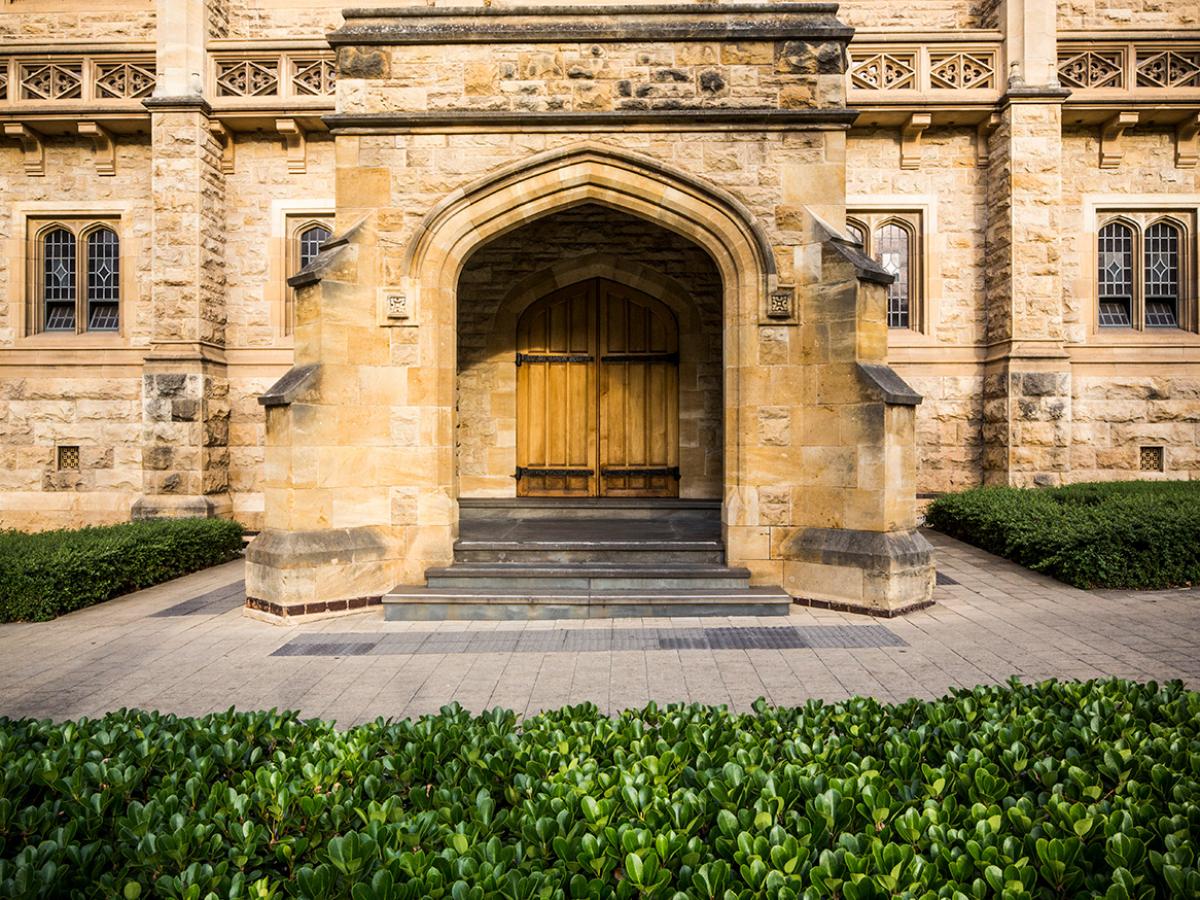
Update (22 November 2024)
The APFIS 2024 program is now available: Final program.
We are fortunate to have received an excellent collection of submissions, with arising presentations. APFIS 2024 is therefore poised to make a state-of-the-art contribution to the composites in construction field through keynote presentations, panel sessions, mini-symposia and special sessions, papers/abstracts and presentations on a range of contemporary topics, and networking.
The registration portal remains open, and we warmly welcome your attendance and participation at APFIS 2024.
Thank you,
APFIS 2024 Chairs
Update (16 October 2024)
Preparations for APFIS 2024 are progressing, with latest updates including:
- We are now accepting a 1-page extended Abstract in parallel to the full paper submission as well (without the need for an Abstract beforehand) – submission details can be found here.
- Final call: The full paper/1-page extended Abstract deadline has been extended from 21st of October 2024 to 31st October 2024 – refer to "Submission details ".
- Early bird registration deadline has been extended from 15th October 2024 to 31st October 2024 – refer to "Registration portal". Please register your attendance by 31st October 2024 to benefit from the Early Bird rates.
We really look forward to seeing you later in the year at APFIS 2024. Should you have any questions then please direct them to apfis2024@adelaide.edu.au.
Thank you,
APFIS 2024 Chairs
Update (11 September 2024)
Preparations for APFIS 2024 are progressing, with latest updates including:
- We are still accepting paper submissions – submission details can be found here.
- Several Mini-symposia and Special Sessions are in preparation on a range of contemporary topics. Should you have an interest to contribute (i.e. paper(s) and presentation(s)), then please contact the organiser of the respective Mini-Symposium and/or Special Session. Your involvement is most welcome.
- The registration portal is now live. Please register your attendance by 15 October 2024 to benefit from the Early Bird rates.
- Should you be in need of an invitation letter for registration and/or visa application purposes, then please contact us at apfis2024@adelaide.edu.au.
Thank you,
APFIS 2024 Chairs
Update (30 July 2024)
We trust your year is progressing well.
Please note that full papers are welcome to be submitted directly until 1st of October 2024 (without the need for an Abstract beforehand). View the submission details.
We really look forward to seeing you later in the year at APFIS 2024. Should you have any questions then please direct them to apfis2024@adelaide.edu.au.
Best regards,
APFIS 2024 Co-Chairs -
Welcome message
Welcome to the website of the Ninth Asia Pacific Conference on FRP in Structures (APFIS 2024). APFIS 2024 will be held in Adelaide, Australia, 8-11 December 2024.
APFIS 2024 is jointly hosted by The University of Adelaide and University of South Australia. Additionally, APFIS 2024 is the official conference of the International Centre for Composites in Infrastructure (ICCI) and is supported by the International Institute for FRP in Construction (IIFC).
APFIS is an international conference series that is open to researchers, academics, students, manufacturers, consultants, contractors and policy makers. Its aim is to showcase research, development and application of fibre-reinforced polymer (FRP) composites in the built environment. The inaugural APFIS conference was held in Hong Kong in 2007. Since then, it has been held in Seoul, Korea (2009), Hokkaido, Japan (2012), Melbourne, Australia (2013), Nanjing, China (2015), Singapore (2017), Gold Coast, Australia (2019), and Shenzhen, China (2022, online). The proceedings of past conferences can be found on the IIFC website.
APFIS 2024 will contain a variety of technical and social activities. On the technical front, there will be keynote presentations, panel sessions, mini-symposia, special sessions, and general session presentations. There will also be special issues containing selected conference papers published by Journal of Composites for Construction and Advances in Structural Engineering. On the social front, there will be a welcome reception, conference banquet as well as ample opportunities to network with colleagues and friends. The conference will be held at the Hilton Hotel in the picturesque city of Adelaide and hence delegates (and accompanying partners) are invited to spend time exploring the surrounds. The banquet will be held at the iconic National Wine Centre of Australia.
Please consult this website regularly for up-to-date information about the conference, including the Latest Updates section. Also, all enquiries can be directed to apfis2024@adelaide.edu.au.
On behalf of the organising committee, we offer you a very warm welcome to Adelaide and we look forward to seeing you at APFIS 2024.
Professor Scott Smith
Chair
Deputy Dean (International)
The University of AdelaideProfessor Yan Zhuge
Chair
Professor in Structural Engineering
University of South AustraliaDr Jun-Jie Zeng
Chair
ARC Discovery Early Career Researcher
University of South Australia -
About the conference
The following is a non-comprehensive list of key topics covered by the conference.
- Materials and products: properties, tests and standards
- Bond behaviour
- Confinement
- Strengthening of concrete, steel, masonry and timber structures
- Seismic retrofit of structures
- Concrete structures reinforced or pre-stressed with FRP
- Concrete filled FRP tubular members
- Hybrid FRP structures
- All FRP structures
- Smart FRP structures
- New FRP materials/systems/techniques
- Numerical simulations for FRP-based/ strengthened structures
- Theoretical investigation
- Inspection and quality assurance
- Durability and long-term behaviour
- Fire performance
- Life-cycle performance, longevity and sustainability
- Design codes and guidelines
- Case studies and practical applications
- Performance of FRP under Extreme Loading
- Green and natural composites
- Additive manufacturing
- Floating and offshore structures
- Space (extra-terrestrial) structures
- Health monitoring and quality control related to FRP systems
- Experimental characterisation
-
Keynote presenters
Professor Amir Fam
Queen’s University, Canada
View profile: Professor Amir Fam
Biography: Professor Amir Fam is the Vice-Dean (Research) of Smith Engineering at Queen’s University, Canada, and has held the Donald & Sarah Munro Chair and a Canada Research Chair for 20 years. He is the President of the International Institute for FRP in Construction (IIFC), Co-Editor of the Canadian Journal of Civil Eng. and Associate Editor of the Journal of Composites for Construction. He is an internationally leading authority in FRP for construction research, including FRP stay-in-place forms. He is the founder of the Rolling Load Simulator (ROLLS) facility for testing bridges, the only one in Canada. Prof. Fam has >420 refereed publications, including >230 journal papers (h-index of 53, Google Scholar). He is an elected Fellow of 8 professional bodies including Canadian Academy of Engineering, IIFC, ASCE, CSCE and ACI.
Professor Peng Feng
Tsinghua University, Beijing, China
View profile: Professor Peng Feng
Professor Branko Glisic
Princeton University, USA
View profile: Professor Branko Glisic
Professor Rebecca Gravina
University of Queensland, Australia
View profile: Professor Rebecca Gravina
Biography: Rebecca Gravina is Professor and Department of Transport and Main Roads (TMR) Chair of Structural Engineering at the University of Queensland in Brisbane. She also held the position Professor of Civil and Infrastructure Engineering at RMIT University, Melbourne, Australia. Professor Gravina obtained her PhD in Structural Engineering from the University of Adelaide and prior joining academia she worked as a consulting Structural Engineer with ARUP in Melbourne. She has 25 years plus experience in academia and consulting engineering. Her research field concerns the long-term performance and durability of reinforced concrete (RC) and prestressed concrete (PC) structures, sustainability of infrastructure, rehabilitation of existing structures with Fibre Reinforced Polymers (FRP), multi-functional self-healing cementitious composites, recycled materials in concrete, and engineering education. Professor Gravina is the Editor in Chief of the Australian Journal of Civil Engineering, co-author of the textbook 'Prestressed Concrete' by Warner, Foster, and Gravina, Board Director of the Australasian Certification Authority for Reinforcing and Structural Steels (ACRS), Executive Director of the International Institute for FRP in Construction, and Member of the Concrete Institute of Australia. Her research is well recognised by industry, and she continuously collaborates with civil infrastructure companies and agencies to support innovation and technology transfer.
Professor Sujeeva Setunge
RMIT University, Australia
View profile: Professor Sujeeva Setunge
Professor Yufei WU
Shenzhen University, China
Biography: Yu-Fei Wu is currently a Distinguished Professor in College of Civil and Transportation Engineering, Shenzhen University, China. His research interests lie in the broad field of structural engineering. He has published 200+ SCI indexed journal papers, with an H-index of 68 (Google Scholar). Professor Wu is the inventor of numerous new structural theories and technologies, and has received prestigious research awards including the Moisseiff Medal from American Society of Civil Engineers, and State Scientific and Technological Progress Award of China. He is listed as one of "China's Highly Cited Scholars" by Elsevier, and has been ranked in the top 100 in the world for "lifetime impact" and the top 50 for "annual impact" in civil engineering by Stanford University's ranking of the world's top 2% scientists in recent years.
View profile: Professor Yufei WU
Keynote title:
A low-carbon, economical, high-performance FRP reinforced concrete marine floating structure
Abstract: This presentation introduces a new biomimetic sustainable marine floating structure that is being developed by a team led by the speaker from Shenzhen University. The aim of the project is to develop a new type of economical but resilient ocean floating structure. The system is characterized by high sustainability, low construction and maintenance costs, and the ability to survive in harsh marine environments, including typhoons. The team has intellectual property rights for all key technologies, including stronger, more durable, cheaper, and more environmentally friendly compression-cast concrete materials, bionic honeycomb floating units, flexible floating unit connectors, new marine energy harvesting systems, new mooring systems, and the survival technology in rough sea conditions.
Professor Tao YU
The Hong Kong Polytechnic University, China
Biography: Prof. Tao YU is a Professor in Structural Engineering at The Hong Kong Polytechnic University. Prof. YU’s research is mainly in the field of infrastructure applications of composite materials, with focuses on innovative hybrid structures enabled by fibre-reinforced polymer (FRP) and FRP-seawater sea-sand concrete (SSC) structures. Prof. YU is the Senior Vice President of the International Institute for FRP in Construction (IIFC), a Co-Editor-in-Chief of the SCI-indexed journal Advances in Structural Engineering, and an Associate Editor of the Journal of Composites for Construction published by ASCE. Prof. YU has received many prestigious awards, including the IIFC Distinguished Young Researcher Award.
View profile: Professor Tao YU
More keynote speakers will be announced soon.
-
Key dates
First announcement and call for abstracts 1 November 2023 Submission of abstracts for review deadline 1-page extended Abstract are welcome for submission as well and the deadline has been extended from 21st of October 2024 to 31st October 2024 – refer to "Submission details". Submission of papers for review deadline Papers are welcome for submission and the deadline has been extended from 21st of October 2024 to 31st October 2024 – refer to "Submission details". Conference 8-11 December 2024 -
Committees
Organising Committee
Scott Smith (Chair) University of Adelaide Australia Yan Zhuge (Chair) University of South Australia Australia Jun-Jie Zeng (Chair) University of South Australia Australia Tafsir Tafsirojjaman (Chair) University of Adelaide Australia Ali Hadigheh University of Sydney Australia Zi Sheng (Albert) Tang James Cook University Australia Sarkar Noor E Khuda Central Queensland University Australia Mohammad Altaf Hossain University of Adelaide Australia Md Abdur Rakib University of Adelaide Australia Rayhan Md Faysal University of Adelaide Australia Additional names are being added as they become available.
International Scientific Committee
Riadh Al-Mahaidi Swinburne University of Technology Australia Luigi Ascione University of Salerno Italy Yu Bai Monash University Australia Charles E. Bakis Pennsylvania State University USA Cristina Barris University of Girona Spain Joaquim Barros University of Minho Portugal Abdeldjelil Belarbi University of Houston USA Brahim Benmokrane University of Sherbrooke Canada Karim Benzarti IFSTTAR France Guang-Ming Chen South China University of Technology China Jian-Fei Chen Southern University of Science and Technology China Wensu Chen Curtin University Australia Lijuan Cheng University of California, Davis USA João R. Correia University of Lisbon Portugal Jian-Guo Dai City University of Hong Kong China Wenhui Duan Monash University Australia Raafat El-Hacha University of Calgary Canada Ehab El-Salakawy University of Manitoba Canada Amir Fam Queen´s University Canada Sabrina Fawzia Queensland University of Technology Australia Peng Feng Tsinghua University China Elyas Ghafoori Leibniz University of Hannover Germany Hamid Vali Pour The University of New South Wales Australia Nabil Grace Lawrence Tech University USA Rebecca Gravina University of Queensland Australia Mark F. Green Queen´s University Canada Hong Guan Griffith University Australia Muhammad Hadi University of Wollongong Australia Pat Heffernan UNSW Canberra Australia Alper Ilki Istanbul Technical University Turkey Robin Kalfat Swinburne University of Technology Australia Jimmy Kim University of Colorado, Denver USA Yue Liu University of Science and Technology Beijing China Marco Di Ludovico University of Naples Federico II Italy Xing Ma University of South Australia Australia Allan Manalo University of Southern Queensland Australia Fabio Matta University of South Carolina, Columbia USA John Myers Missouri University of Science and Technology USA Antonio Nanni University of Miami USA Alex Ng University of Adelaide Australia Tuan Ngo University of Melbourne Australia Martin Noël University of Ottawa Canada Togay Ozbakkaloglu Texas State University USA Thong Pham University of South Australia Australia Hafizah Binti Ramli Queensland University of Technology Australia Gianluca Ranzi University of Sydney Australia Hayder Rasheed Kansas State University USA Bijan Samali Western Sydney University Australia Jacob W. Schmidt Aalborg University Denmark José Sena-Cruz University of Minho Portugal Tai Thai University of Melbourne Australia Tamon Ueda Shenzhen University China Phillip Visintin University of Adelaide Australia Xin Wang Southeast University China Zhenyu Wang Yantai University China Yu-Fei Wu Shenzhen University China Zhishen Wu Ibaraki University & Southeast University Japan Chengqing Wu University of Technology Sydney Australia Guijun Xian Harbin Institute of Technology China Jiaqi Yang China University of Mining and Technology China Isamu Yoshitake Yamaguchi University Japan Qian-Qian Yu Tongji University China Tao Yu Hong Kong Polytechnic University China Shi-Shun Zhang Huazhong University of Science and Technology China Sarah Zhang Western Sydney University Australia Xiao Lin Zhao Hong Kong Polytechnic University China Additional names are being added as they become available.
-
Awards
The following awards will be presented at the conclusion of the conference.
Best technical paper
Best applied paper
-
Submission details
Full papers are welcome for direct submission until 31st October 2024 without an Abstract submission/acceptance.
In parallel to the full paper submission, we are now accepting a 1-page extended Abstract as well until 31st October 2024 without a prior Abstract submission/acceptance as well.
“Papers will be peer reviewed and all accepted papers will be published in the conference proceedings. The proceedings will be licensed under the Creative Commons Attribution 4.0 International Licence.
Paper submissions are to be addressed to apfis2024@adelaide.edu.au.
Paper submission
Full papers are welcome for direct submission until 31st October 2024 without an Abstract submission/acceptance.
In parallel to the full paper submission, we are now accepting a 1-page extended Abstract as well until 31st October 2024 without a prior Abstract submission/acceptance as well. Please prepare your 1-page extended Abstract following the same template for the full paper. The 1-page extended abstract will be peer-reviewed and published in the conference proceeding. Please note that only full papers are eligible for best paper awards and will be considered for journal special issues.
Instructions to authors
Authors are advised to carefully consult the following instructions in order to ensure consistency of style and format of conference papers. Papers will be returned for revision if they are not in compliance with the instructions.APFIS2024 Instructions to authors
Paper template
All papers are to be prepared using the following template.Copyright and licence agreement
A completed (and signed) Copyright and Licence Agreement is to be submitted with each paper.APFIS2024 Copyright and Licence Agreement
Creative commons attribution 4.0 International public licence
Paper submission
Paper(s) as well as completed Copyright and Licence Agreement forms are to be submitted to: apfis2024@adelaide.edu.au.Please indicate one of these "Key Topics", which aligned most with your paper in the body text of your paper submission email.
-
Program
The final program for APFIS 2024 conference is now available!
Download it from the link below to explore the exciting keynote presentations, panel sessions, mini-symposia and special sessions, papers/abstracts and presentations on a range of contemporary topics, and networking for APFIS 2024. Don’t forget to check the schedule for your presentation as well.
Please click here to download the final program of APFIS 2024
Accepted Mini-Symposia (MS) and Special Sessions (SS) are listed as follows. Please contact the respective session organisers to contribute a paper and presentation to a session. Contributions are most welcome to researchers, students, industry and government representatives.
Sustainability of FRP Composites and Concrete Materials (MS-1)
Organisers
Ali Hadigheh (The University of Sydney, ali.hadigheh@sydney.edu.au);
Hongjian Du (National University of Singapore, ceedhj@nus.edu.sg)About
The mini-symposium will focus on the latest research and advancements in sustainability within the field of FRP composites and concrete materials and structures.The symposium will cover a wide range of topics, including but not limited to:
- Waste management and recycling: Strategies for effective management of composite materials and concrete waste.
- Circularity: Approaches to enhance the circular economy of the built environment.
- Innovative materials and technologies: Explore new materials and technologies that enhance the sustainability and productivity of FRP composites and low-carbon concrete.
- Life cycle analysis and environmental impact study.
- Integrated Design Approaches: Best practices for designing and manufacturing low-carbon composites and concrete materials to achieve sustainable construction goals.
- Additive manufacturing of recycled products.
- Regulatory and policy frameworks: Understanding the regulatory landscape and policy frameworks supporting sustainable practices.
Structural Deficiencies and FRP Solutions (MS-2)
Organisers
Zhong-Kui Cai (Nanjing Tech University, zhongkuicai@njtech.edu.cn);
Zhiqiang Dong (Southeast University)About
This mini-symposium discusses common and complicated structural deficiencies, followed by innovative solutions that employ FRP materials or other advanced methods. Furthermore, practical applications of FRP products in major engineering projects will also be presented. The topics of this mini-symposium include but are not limited to:- Landslide disasters and applications of FRP anchor bolts.
- Column buckling issues and confinement of FRP and/or steel.
- Coastal corrosion problems and retrofitting by FRP materials.
- Earthquake fragility and seismic resilience upgrading methods.
Advances in FRP-concrete Hybrid Structures (MS-3)
Organisers
Hongwei Lin (Beijing Jiaotong University, hwlin@bjtu.edu.cn);
Jia-Qi Yang (China University of Mining and Technology (Beijing), yangjq1986@163.com)About
FRP-concrete hybrid structures is an important field of FRP application in civil and infrastructure engineering. The topics of this mini-symposium includes but not limited to:- Behaviour of FRP-to-concrete interfaces.
- FRP confined concrete.
- FRP-concrete hybrid structural members.
- Numerical analysis of FRP-concrete hybrid structures.
- Hybrid structures of FRP-novel cementitious materials.
- Practical application of FRP-concrete hybrid structures.
Advances in FRP/UHPC-enabled novel structural members (MS-4)
Organisers
Shishun Zhang (Huazhong University of Science and Technology, shishun@hust.edu.cn);
Guan Lin (Southern University of Science and Technology, ling@sustech.edu.cn);
Cheng Jiang (Western Sydney University, cheng.jiang@westernsydney.edu.au).About
This mini-symposium aims to showcase the latest advancements in the field of FRP/UHPC-enabled novel structural members. Topics of interest include, but are not limited to:- Novel design concepts and fabrication methods for FRP/UHPC structural members.
- Experimental studies on the mechanical behavior of FRP/UHPC structural members.
- Numerical modeling and simulation of FRP/UHPC structural members.
- Applications of FRP/UHPC structural members in infrastructure, building construction, and other fields.
- Case studies of successful implementations of FRP/UHPC structural members.
Research and Applications of FRP in Underground Spaces and Geotechnical Anchoring (SS-1)
Organiser
Yue Liu (University of Science and Technology Beijing, yueliu@ustb.edu.cn).
High Performance Composite Materials in Protective Structures (SS-2)
Organiser
Jun Li (University of Technology Sydney, Jun.Li-2@uts.edu.au).
Application of FRP to Structural Reinforcement (SS-3)
Organiser
Xuan Chen (Xi'an University of Architecture & Technology, chenxuan@xauat.edu.cn). -
Registration
Please click here to register your attendance at APFIS 2024
The schedule of conference fees (noting that every effort is being made to deliver an economical and high-quality conference experience), as well as terms and conditions, are provided as follows.
Type of registration Early bird registration
(up and including 31 October 2024)
(AUD$) (Inclusive of GST)Registration
(after 31 October 2024)
(AUD$) (Inclusive of GST)Full (Regular delegates) 950 1050 Students 550 590 Day (Regular delegates and students) 390 390 Welcome reception (Additional tickets) 75 75 Banquet (Additional tickets) 150 150 The registration fee includes:
"Full" and "Student" registrations:
- Access to all conference sessions.
- Presentation/publication up to two full papers per delegate or student.
- Lunches and coffee-breaks.
- One admission to the welcome reception.
- One admission to the conference banquet.
- Publication of full papers in the APFIS 2024 proceedings.
"Day" registration:
- Access to all conference sessions on day of registration.
- Lunch and coffee-breaks on day of registration.
- Does not include welcome reception and banquet, however, tickets to these events can be purchased separately upon registration.
Delegates will need to register as a "Full" or "Student" registration to have their paper(s) published in the proceedings and the opportunity to deliver presentation(s).
Cancellation and refund terms & conditions: Cancellation of registration paid can be made up to 20 November 2024, where 90% of the expense incurred will be refunded. No refund will be given for cancellations after 20 November 2024.
-
Venue & accommodation
Conference venue
Sunday 8 – Wednesday 11, December 2024
Hilton Adelaide
233 Victoria Square
Adelaide, SA 5000Banquet dinner venue
National Wine Centre of Australia
Corner of Hackney Rd &, Botanic Rd, SA 5000Accommodation
A very competitive room rate at the Adelaide Hilton Hotel (i.e. the conference hotel) is available, and accommodation can be booked. When booking, kindly note the Group Name (i.e. APFIS2024) and Group Code (i.e. GAPFI).
-
Sponsors & Exhibitors
Organisers
Supporters
Sponsorship and exhibition opportunities
There are sponsorship and exhibition opportunities available at the APFIS 2024 conference. Please direct enquiries to apfis2024@adelaide.edu.au.
Enquiries
Please send any APFIS 2024 enquiries to apfis2024@adelaide.edu.au.


